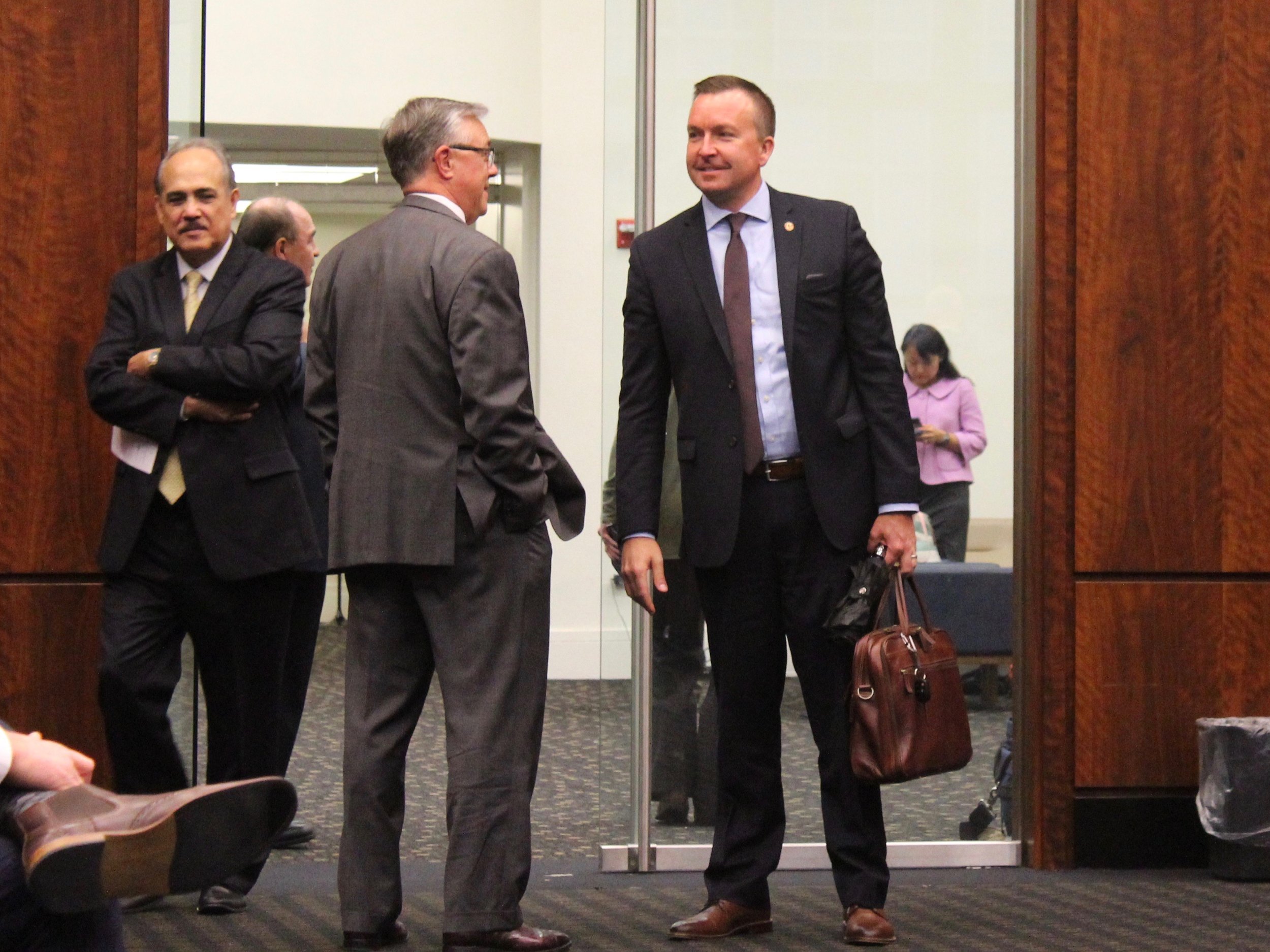Manar sponsors bill to end daylight saving time
Carlinville High School civics students spur change
State Sen. Andy Manar attends a hearing in Chicago last month. (One Illinois/Ted Cox)
By Ted Cox
Next winter could be the last time Illinoisans set their clocks back if a new Senate bill becomes law.
State Sen. Andy Manar is lead sponsor of a bill that would establish daylight saving time once and for all when clocks spring forward next March.
The idea is not new, and many reformers have proposed ending daylight savings, citing how the loss of an hour in the spring and resetting clocks to standard time in the fall leads to an increase in traffic accidents, heart attacks, and strokes in the days immediately after, as well as lost productivity overall.
But Manar was prompted to take action by a handful of Carlinville High School civics students who advanced the proposal as part of a class project.
“After their presentation, during which I peppered them with numerous questions, I committed to them that I would introduce legislation in the Illinois Senate to make daylight saving time the standard, year-round time in Illinois,” Manar said in a news release on the Illinois Senate Democrats website. “I was impressed with the very strong case they presented, and their proposal deserves a debate in Springfield.”
Carlinville is located midway between Springfield and St. Louis, just north of Manar’s hometown of Bunker Hill. The five seniors promoting the proposal are Andrew DeNeve, Tyler Behme, Travis Osborn, Tristen Burns, and Tucker Green.
“Spring forward especially is annoying because everybody loses an hour of sleep, and it just leads to an unproductive week overall at school,” said DeNeve, who’s committed to attend Princeton University after graduation. “Honestly, none of us thought this would get very far, so we were excited when Sen. Manar said he would author a bill. We kind of expected a rejection there.
“It’s been exciting for us and it’s taught us that our elected officials are there to represent us and that citizens play a crucial part in our lawmaking process by coming up with the ideas,” he added. “I think it worked better than I expected it to.”
The five have agreed to present their research when the bill gets a hearing before a Senate committee.
Senate Bill 533 was a shell bill submitted by Senate President John Cullerton before Manar took it over and attached his daylight-savings proposal to it a week ago. It simply states that “daylight saving time shall be the year-round standard time of the entire state,” beginning with setting clocks ahead on the second Sunday of March next year.
Even if adopted, however, the proposal could still be held up in time. According to a recent story in The New York Times, the federal Uniform Time Act of 1966 allows states to opt out of daylight savings and stick to standard time, as do Hawaii, Arizona, and Puerto Rico, but “for reasons that historians say remain murky, the law does not allow states to opt in all the way, and choose daylight time year-round.”
California voters approved a permanent switch to daylight savings last year, as did the Florida legislature, but according to the Times those measures would “require an act of Congress to take effect.”
Regardless, the student campaign has already had the desired effect on their civics instructor. Logan Ridenour has been teaching the class at Carlinville High for seven years, requiring students to pick an issue, write up a concrete proposal to get it adopted, and figure out how to get it accomplished politically. Social media and a public-service announcement are included in the campaign.
“They surpassed all expectations,” Ridenour said. “These are good, dedicated kids with varied backgrounds and future plans, and they were able to sit down and work through it and get it all hammered out. That’s part of being a member of an active citizenry.”

